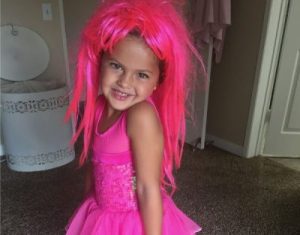Part of helping our kids develop healthy sexuality is looking at what we as parents are bringing to the table.
For a lot of us, the thought of talking to our kids about developing a healthy sexuality is hugely anxiety producing. Now part of that may be that it’s just new; anything thats new and never experienced before is going to inherently make us a little nervous because we can’t fully predict what’s going to happen – that’s totally normal! Also normal is that this feeling might come from a sense that we’re not equipped to have the conversation. For a lot of us, we might no have had the best examples to follow. For most of us I would imagine, our parents or caregivers or community didn’t do an adequate job talking with us about sex.
For me, this looked like my mom sitting me down over a bowl of ice cream, I had to have been 8 or so, and reading Dr. Spock’s “Where did I come from?”. It’s a picture book with funny illustrations that says an orgasm feels like “a sneeze, but much better”. I distinctly remember laughing out loud when she told me a man’s penis goes inside a woman’s vagina. I’m pretty sure I thought the whole thing was really funny at the time. As I got older though and had a lot of questions starting to build up about sex, but I never quite felt it was okay to bring up again. From my perspective, my mom sat me down very formally and basically said here’s this big secret that adults know and kids don’t and then never brought it up again. It felt very similar to when she told me that Santa Claus and the Tooth Fairy weren’t real. Both those secrets though had few lasting consequences in comparison to the complexity of sex. This feeling of secrecy made it difficult for me to know it was okay to ask questions when I started to have experiences around sex, like when I stumbled upon pornography watching tv late one night after my parents went to sleep, or when I hugged a boy in 8th grade and felt that he had an erection.
This feeling of not being able to ask questions forced me to get my sexual education elsewhere and what I was hearing really scared me. Though I was not raised a Christian, from an early age I actually chose decided not to have sex until marriage because I was afraid of it, though I still had some. And because I didn’t have a healthy view of myself sexually I ended up having some very damaging experiences in late high school and early college. Then I became a Christian and heard the whole “no sex before marriage” business and I REALLY became scared. I never developed an understanding of sex as being a good thing.
Needless to say when I got married, my husband and I have had to work on a few things after we got married. But the important thing is we have. Over the past six and a half years Dave and I have spent many hours in long conversations and in individual and couples counseling tending to the unhealthy patterns that developed in our sexual lives, among other things. And because of this I can stand here and confidently say that sex is a beautiful, sacred part of my life where I find joy and intimacy. And it is also something I will be journeying through for the rest of my life.
Now imagine for a minute if I hadn’t invested all of that energy coming to a more healthy place sexually, what kind of message do you think I would have offered my kids about their sexuality? If I allowed the fear of sex to be my only understanding of it? What I know is that fear breeds fear. Our kids look to us as a guide for what is safe and healthy and good and if sex is not one of those things for you right now, despite how much you might want something different for your kids, it might be difficult for them to get that message.
Your story may not look like mine. There may have been shame, abuse, confusion, anxiety, addiction or there may have been confidence and support and wholeness and self love. But whatever it was and is for you right now, we have to understand that it is going to affect the way we present sexuality to our kids. So my hope for you is that not only do you desire to look at your own sexuality for the sake of your children, but that you might be encouraged to understand yourself in this area for your own emotional and spiritual wellbeing.
Some helpful questions to consider (some adapted from Parenting from the Inside Out):
-
What did your parents, family, and community teach you about sex?
-
What examples did you witness of sexuality?
-
How did that information shape your view of your own sexuality?
-
How have your childhood experiences around sexuality influenced your relationships as an adult?
-
Are there elements of your sexual past that are particularly difficult to think about?
-
What would you like to heal or change about the way you understand your own sexuality?
Best wishes in this important season for you and your family. We’re here to journey with you through it,
Mariah McQueen

